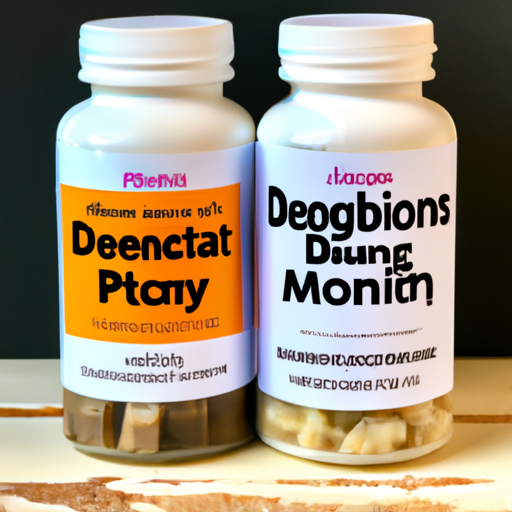Introduction
You’ve probably heard about the benefits of probiotics for humans, but did you know that man’s best friend can also reap the rewards? As a loving dog owner, you’re always looking for ways to improve the health and happiness of your furry friend. Probiotics may be just the thing you’re looking for.
Understanding Probiotics
Probiotics are, in simple terms, friendly bacteria. They help maintain a healthy balance of microorganisms in the body and can aid in digestion, strengthen the immune system, and even improve mental health.
For dogs, probiotics can:
- Improve digestion and nutrient absorption
- Boost their immune system
- Help manage allergies
- Improve skin and coat health.
Choosing the Right Probiotic for Your Dog
The type of probiotic you choose for your dog can depend on several factors. These include their age, size, breed, and any specific health issues they might have. Here are some of the most common types of probiotics for dogs:
-
Lactobacillus: This is one of the most common probiotics. It helps with digestion and can alleviate symptoms of allergies.
-
Bifidobacterium: This probiotic is beneficial for general gastrointestinal health and can help manage diarrhoea.
-
Enterococcus: This probiotic is often used to treat dogs with bowel issues.
You might also want to consider a multi-strain probiotic, which contains a variety of beneficial bacteria.
| Probiotic Type | Benefits |
|---|---|
| Lactobacillus | Aids digestion, alleviates allergies |
| Bifidobacterium | Supports gastrointestinal health, manages diarrhoea |
| Enterococcus | Treats bowel issues |
Using Probiotics Effectively
Once you’ve chosen the right probiotic for your dog, it’s essential to use it correctly. Always follow the dosage instructions provided by the manufacturer. It’s generally best to start with a smaller dose and gradually increase it over time.
Remember, probiotics are most effective when combined with a balanced diet and regular exercise. They are not a cure-all solution but can be a valuable part of your dog’s overall healthcare routine.
Monitoring Your Dog’s Response
After starting your dog on probiotics, keep a close eye on their behaviour and physical condition. Any significant changes, whether positive or negative, could indicate how well they’re responding to the treatment.
If your dog shows signs of discomfort, such as increased gas, diarrhoea, or changes in appetite, it may mean the probiotic isn’t right for them. In this case, you should consult your vet immediately.
FAQ
Q: Can all dogs take probiotics?
A: Most dogs can benefit from probiotics, but it’s always best to consult with a vet before starting any new supplement regimen.
Q: How long does it take for probiotics to work in dogs?
A: It can vary, but many owners notice improvements in their dogs’ health within a few weeks.
Q: Can I give my dog human probiotics?
A: While it’s not harmful, canine-specific probiotics are generally more beneficial for dogs.
Q: Do probiotics have side effects in dogs?
A: Some dogs may experience minor side effects like gas and bloating, but these usually subside as the dog’s system adjusts to the supplement.
Q: How often should I give my dog probiotics?
A: It’s generally safe to give your dog probiotics daily, but the exact dosage and frequency should be determined by a vet.



